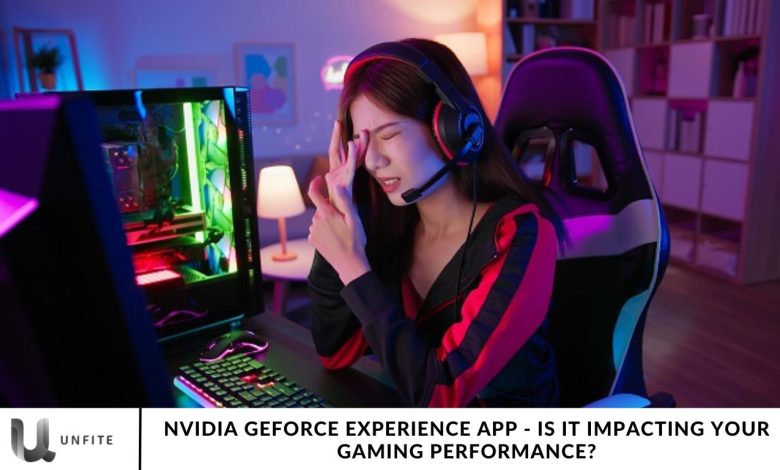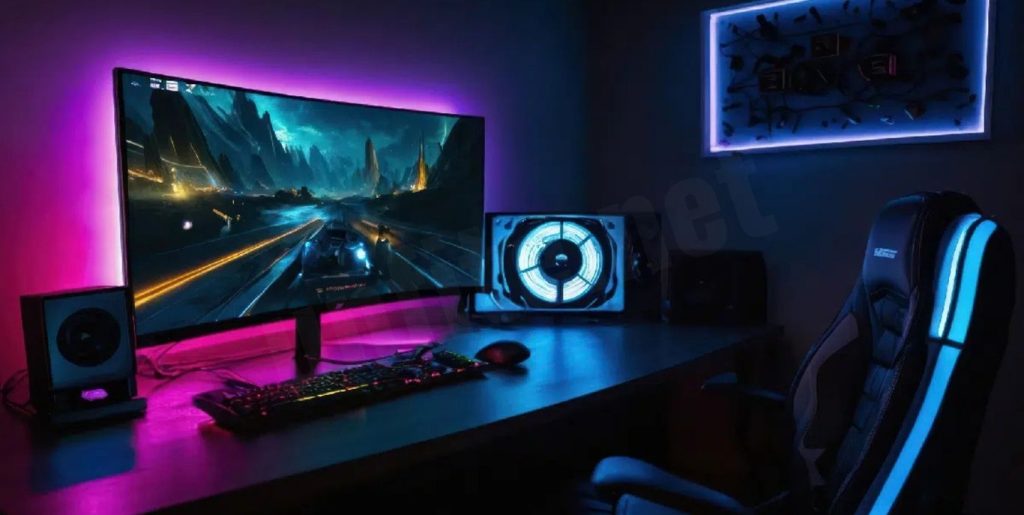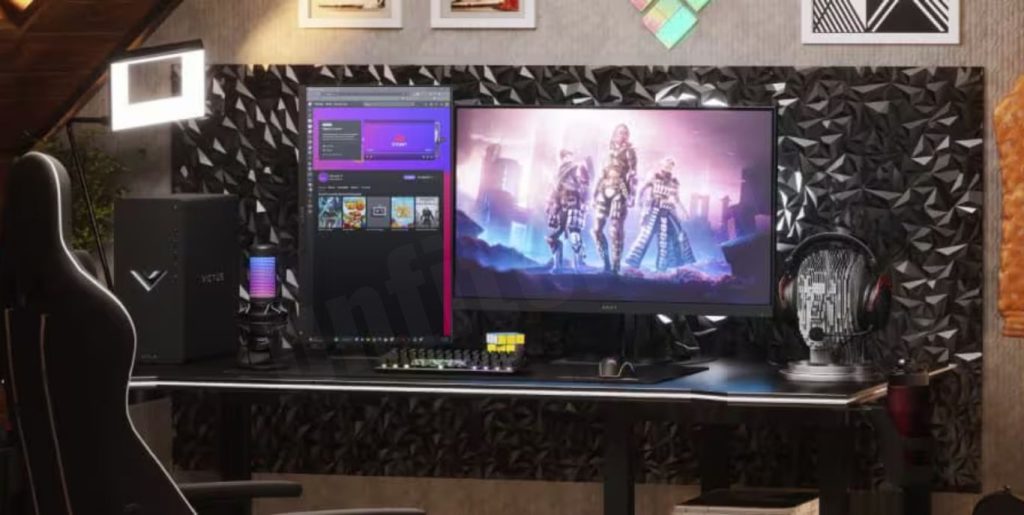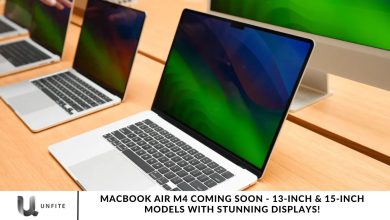Nvidia GeForce Experience App – Is It Impacting Your Gaming Performance?

If you’re a gamer using an Nvidia graphics card, you’re likely familiar with the Nvidia GeForce Experience app. This app offers various features and optimization tools designed to enhance your PC gaming experience.
However, recent reports suggest that the app is negatively impacting gaming performance in some cases. Don’t worry, though—I’ll explain it step by step.
What are the reports saying?
The controversy began with a tweet from Sebastian Castellanos, who claimed that uninstalling the GeForce Experience app resulted in a 15% boost in his gaming performance. A 15% improvement is significant. Soon after, another Twitter user reported an 11% performance boost after removing the app. These weren’t just casual claims; the reports were quite severe.
Analysis of Tom’s Hardware
We can’t rely solely on rumors, which is why well-known tech reviewers, like Tom’s Hardware, decided to test these claims. After testing five different games, they initially reported a performance drop of up to 15%. However, they later clarified that the actual performance reduction ranged from 2% to 12%.
You might think, “A 2% drop isn’t much, but a 12% drop is noticeable!” And for gamers who are keen on every frame, even a tiny performance dip can make a significant difference.
Nvidia GeForce Experience App – Where is the problem?

To understand the issue, we need to pinpoint the cause. According to reports, the problem lies with Nvidia’s game filters feature, which is part of the GeForce Experience app. These filters use AI to adjust in-game visuals, such as enhancing colors, sharpening details, or modifying lighting effects.
However, this AI-driven process consumes significant processing power, which can reduce your GPU’s performance. In simple terms, while these filters aim to improve your game’s appearance, they can lower your FPS (frames per second).
What is the solution?
If you’re experiencing performance issues while using GeForce Experience, don’t worry—there’s a simple fix for this problem:
Disable Game Filters:
All you need to do is turn off Nvidia’s game filters feature. While it’s not enabled by default, if you’ve ever activated it, it can put unnecessary strain on your GPU. Turn it off in the Settings, and your performance should improve significantly.
Uninstalling the app:
If you’re not fully utilizing GeForce Experience, you can uninstall the app. Even without it, you can still manually update your graphics drivers directly from Nvidia’s website.
Pros and Cons of the GeForce Experience App
When evaluating an app, it’s essential to consider both its pros and cons. Let’s take a look at the positives and negatives of the GeForce Experience:
Pros:
- Easy Driver Updates: The app automatically downloads and installs the latest drivers for your graphics card.
- Game Optimization: It adjusts game settings based on your PC’s hardware for optimal performance.
- Screen Recording and Streaming: The ShadowPlay feature allows you to record your screen and live stream your gameplay.
- Game Filters: For visual enthusiasts, the app’s filters can significantly enhance your gameplay experience.
Cons:
- Performance Impact: As we’ve discussed, specific features, like game filters, can negatively affect performance.
- Background Processes: The app runs in the background, consuming valuable system resources.
- Unnecessary Overhead: Not all users require the extra features the app offers, adding unnecessary complexity.
Should I use GeForce Experience?
The answer to this question depends on how you use the app. If you find features like game optimization and driver updates beneficial, then continuing to use the app makes sense.
However, if you’re a hardcore gamer looking for maximum FPS, you can enhance your performance by turning off the filters or uninstalling the app altogether.
Community Reaction
The gaming community has mixed reactions to Nvidia’s “betrayal.” Some gamers are frustrated that one feature negatively affects their gaming experience, while others argue that the issue is with the game filters, not the entire app.
As this issue gains attention, Nvidia may address it in future updates. In the meantime, you can check your settings and turn off the filters for improved performance.
How Does GeForce Experience Impact Gaming Performance?
Introduction to Performance-Related Concerns with the App
While the Nvidia GeForce Experience app offers numerous features designed to enhance the gaming experience, some users have raised concerns about its impact on gaming performance. The primary issue revolves around certain features, particularly the game filters, which appear to affect game performance overall.
Gamers, especially those looking for high FPS (frames per second) and smooth gameplay, have begun noticing performance drops after installing or updating the app. Although GeForce Experience offers many valuable tools, such as automatic driver updates and game optimization, these benefits can sometimes come at the cost of system resources, which may affect gaming performance, particularly for more demanding titles.
Reports and Findings from Gamers About Performance Drops
Recent reports from gamers on social media platforms, such as Twitter, have sparked concern about GeForce Experience’s impact on gaming performance. One key claim that ignited the debate was from a Twitter user, Sebastian Castellanos, who reported a 15% boost in performance after uninstalling the app. Other users also shared similar findings, with some claiming performance improvements of around 10-12% after removing GeForce Experience.
To investigate these claims, reputable tech reviewers, including Tom’s Hardware, conducted performance tests. Initially, they found a noticeable drop in performance—up to 15% in some cases—after GeForce Experience was installed. However, they later clarified that the actual performance reduction ranged from 2% to 12%, depending on the system and games tested. While a 2% drop might not be noticeable to every gamer, a 12% reduction in FPS can significantly impact the gaming experience, particularly in fast-paced or competitive games where every frame matters.
These findings highlight that while the app provides valuable features, it can also lead to unexpected performance drops under certain circumstances, especially when advanced features like game filters are enabled.
The Cons of the Nvidia GeForce Experience
Performance Impact: How Features Like Game Filters Can Affect FPS and Overall Gaming Performance
One of the most discussed performance-related issues with the Nvidia GeForce Experience app is the impact of its game filters. These filters use AI to enhance visuals by adjusting colors, sharpness, and lighting effects. While these features can make games look more visually appealing, they come with a significant performance trade-off.
Game filters, in particular, demand substantial GPU resources to process the visual enhancements. This extra processing power can reduce frames per second (FPS), resulting in lower gaming performance. For gamers who prioritize smooth and fast gameplay, this drop in FPS can be especially noticeable, leading to stuttering or less responsive controls. In competitive or fast-paced games, even a tiny reduction in FPS can affect gameplay and the overall experience. Turning off these filters can help recover the lost FPS, especially for those seeking maximum performance.
Background Processes: How the App Runs in the Background and Consumes System Resources
Another concern with GeForce Experience is that it constantly runs in the background, consuming valuable system resources. Even when you’re not actively using the app, it keeps track of driver updates, game optimizations, and other features. These background processes can use up CPU and memory, which might reduce the performance of different applications, including games.
For users with lower-end PCs or those who prioritize maximum performance, these background operations can significantly drain system resources. The app can consume processing power that could otherwise be used for games, making the system feel slower or less responsive.
Unnecessary Overhead: Not All Users Need All the App’s Features
While GeForce Experience offers a wide range of features, not every user requires all of them. For example, casual gamers may not need the game optimization or streaming features that come with the app. For these users, the extra overhead from features they don’t use can complicate the system and add unnecessary complexity.
Unnecessary features can also consume bandwidth, storage, and processing power, all of which could be better allocated to enhancing gaming performance. For gamers focused purely on FPS and game speed, minimizing the use of GeForce Experience features—or uninstalling the app altogether—might be the best option to avoid this overhead.
Is Nvidia GeForce Experience Worth It?

Is GeForce Experience Beneficial for Casual Gamers vs. Hardcore Gamers?
The Nvidia GeForce Experience app can be highly beneficial depending on the type of gamer you are. For casual gamers, the app provides convenient features like automatic driver updates, game optimization, and visual enhancements. These features can improve the overall gaming experience without requiring much effort or technical know-how. Casual gamers who are not focused on squeezing out every frame of performance but still want a decent gaming experience will likely find the app helpful. It simplifies keeping graphics drivers up-to-date and automatically optimizes game settings for their hardware, ensuring smoother gameplay.
For hardcore gamers, however, GeForce Experience may not be as ideal. These gamers often prioritize maximum FPS and performance, particularly in fast-paced, competitive games where every frame counts. Features like the game filters and background processes that run in the app can negatively impact gaming performance by consuming system resources. In this case, the app’s potential to reduce FPS may outweigh its benefits. Hardcore gamers who are dedicated to optimizing every aspect of their system for peak performance might find it better to either turn off certain features or uninstall the app entirely to avoid any unnecessary strain on their GPU or CPU.
When It Makes Sense to Keep the App and When to Uninstall or Disable Features
Keep the App:
If you’re a casual gamer who values convenience and doesn’t mind a slight performance dip for enhanced visuals or automatic optimizations, keeping GeForce Experience makes sense. It simplifies tasks like updating drivers and optimizing game settings without much input from you. Additionally, features like ShadowPlay for recording or streaming games can be appealing to gamers who want to share their gameplay.
If you have a mid-range or high-end PC and don’t feel significant performance drops, the app can help you keep your system up to date and running smoothly without substantial drawbacks.
Uninstall or Disable Features:
If you’re a hardcore gamer aiming for the highest FPS and smoothest performance, uninstall the app or turn off specific features, especially game filters, that can reduce FPS. Hardcore gamers typically value raw performance over extra features, and running GeForce Experience in the background can hinder that.
Suppose you only need driver updates and do not care about the automatic game optimization or extra features like streaming and recording. In that case, you can turn off those features in the app’s settings, thereby reducing unnecessary overhead while still maintaining up-to-date drivers.
For users with a lower-end PC or limited resources, turning off the background processes or uninstalling the app entirely can free up valuable system resources, boosting overall performance in resource-demanding games.
Frequently Asked Question
What is Nvidia GeForce Experience, and what does it do?
Nvidia GeForce Experience is a software application designed to optimize your gaming experience. It provides automatic driver updates, game optimization based on your PC’s hardware, and additional features like game recording, streaming, and visual enhancements through game filters.
Can the Nvidia GeForce Experience impact my gaming performance?
Yes, it can. While GeForce Experience offers valuable features, certain aspects—like game filters and background processes—can reduce FPS and overall performance, particularly in resource-heavy games. These features consume GPU and CPU resources, which might result in a noticeable drop in performance.
What is the main reason GeForce Experience affects performance?
The primary culprit is the game filters feature, which uses AI to enhance the visual quality of games by adjusting colors, sharpness, and lighting. This requires significant processing power, which can reduce your FPS and overall gaming performance.
How much performance can I lose due to GeForce Experience?
Performance drops vary depending on your system and the features enabled. Reports from users suggest FPS reductions between 2% and 12%. In some cases, gamers have noticed up to a 15% drop in performance, particularly when the game filters feature is active.
Can I turn off the game filters to boost performance?
Yes, turning off the game filters feature can help restore FPS and improve performance. If you don’t need the visual enhancements during gameplay, you can do this through the GeForce Experience settings.
Does GeForce Experience run in the background and consume resources?
Yes, GeForce Experience runs in the background by default, consuming system resources like CPU and memory for tasks such as automatic updates and optimizing game settings. This can affect performance, especially if you have a low-end system or are running multiple applications.
Should I keep Nvidia GeForce Experience if I only need driver updates?
Suppose you only need driver updates and don’t care about the extra features like game optimization or streaming. In that case, you can either turn off unnecessary features within the app or uninstall it and manually update your drivers through Nvidia’s website.
Conclusion
The Nvidia GeForce Experience app offers a range of convenient features, from automatic driver updates to game optimization and visual enhancements. For casual gamers, these benefits often outweigh any slight performance drops, providing a hassle-free gaming experience. However, for hardcore gamers who prioritize maximum FPS and smooth gameplay, certain features like game filters and background processes can negatively affect performance by consuming valuable system resources.
Ultimately, whether GeForce Experience impacts your gaming performance depends on your individual gaming needs and hardware. If you notice a significant FPS drop, especially after enabling game filters, you can quickly boost performance by turning off those features or uninstalling the app altogether; for gamers who value both performance and convenience, selectively turning off unnecessary features can strike a balance, ensuring a smooth gaming experience without compromising on graphics or performance.




